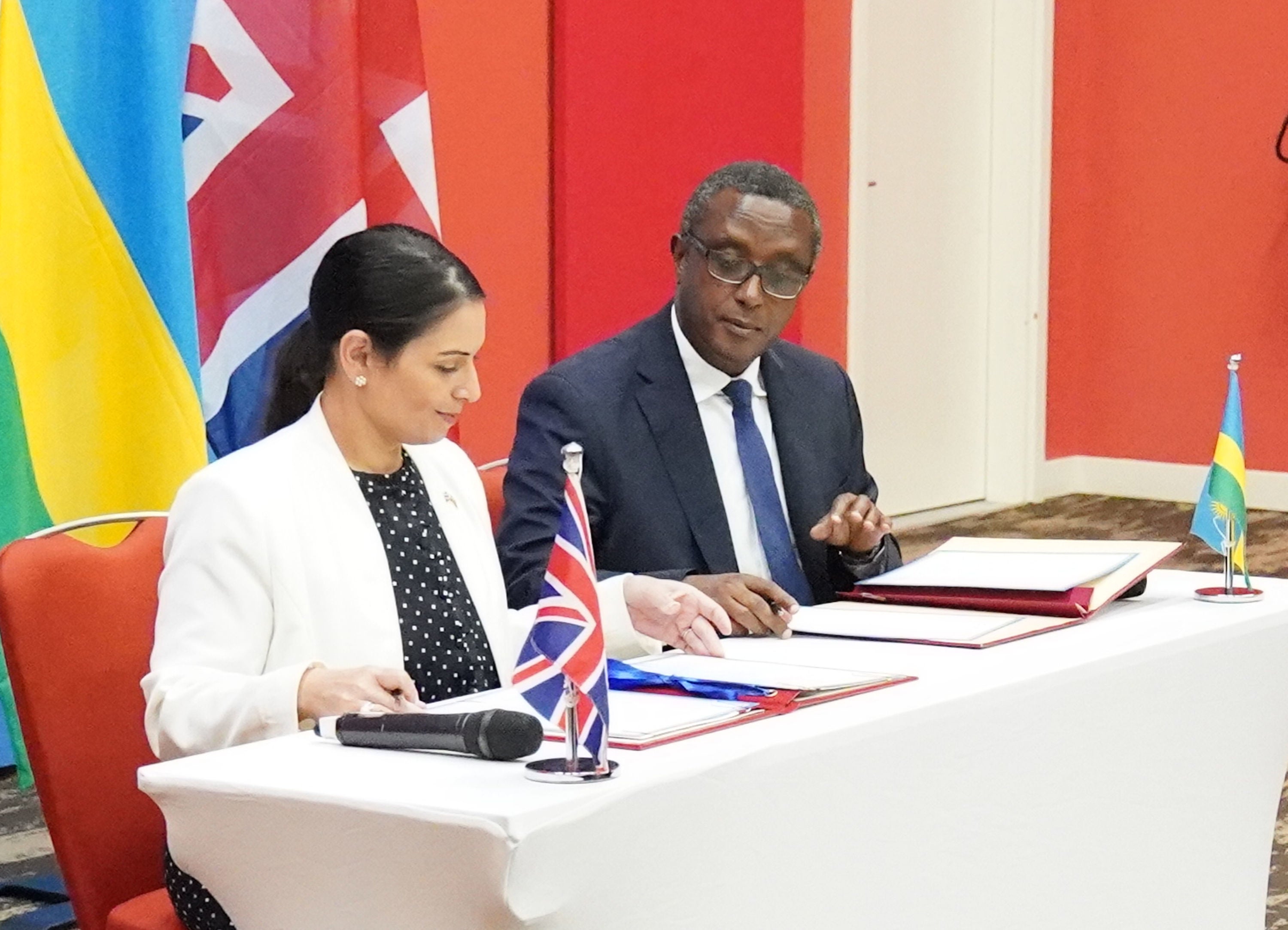Rwanda migrants plan ‘cannot stand up to judgment of God’, says archbishop
The Archbishop of Canterbury is set to condemn the Government’s plans in his Easter Sunday sermon.

The Government’s plans to send migrants to Rwanda cannot stand up to the judgment of God, the head of the Church of England has said.
Archbishop of Canterbury Justin Welby is set to make a stark intervention on the Government’s immigration plans in his Easter sermon at Canterbury Cathedral on Sunday.
He is expected to say measures announced by Prime Minister Boris Johnson and Home Secretary Priti Patel this week “cannot carry the weight of our national responsibility as a country formed by Christian values”.
He will say this is “because sub-contracting out our responsibilities, even to a country that seeks to do well, like Rwanda, is the opposite of the nature of God who himself took responsibility for our failures”.
Earlier this week the Government announced plans to curb migrant crossings of the English Channel in small boats, and people who are deemed to have entered Britain by unlawful means since January 1 may be sent to Rwanda where they will be permitted to apply for asylum in the African country.
The measures have faced a fierce backlash from opposition parties, some within the Conservative Party, and charities.
The UN Refugee Agency opposed the plans and on Saturday Robina Qureshi, director of the refugee homelessness charity Positive Action in Housing, said: “The refugee policy of this country should be clear by now.
“It’s not about saving refugees’ skins, it’s about saving this Government’s skin.”
Conservative MPs have backed the plans, claiming the small boats issue is important to constituents.
But the archbishop is expected to say there are “serious ethical questions about sending asylum seekers overseas”.
He will say: “The details are for politics. The principle must stand the judgment of God, and it cannot. It cannot carry the weight of resurrection justice, of life conquering death. It cannot carry the weight of the resurrection that was first to the least valued, for it privileges the rich and strong.”
A Home Office spokesperson said: “The UK has a proud history of supporting those in need of protection and our resettlement programmes have provided safe and legal routes to better futures for hundreds of thousands of people across the globe.
“However, the world is facing a global migration crisis on an unprecedented scale and change is needed to prevent vile people smugglers putting people’s lives at risk and to fix the broken global asylum system.
“Rwanda is a fundamentally safe and secure country with a track record of supporting asylum seekers. Under this agreement, they will process claims in accordance with the UN Refugee Convention, national and international human rights laws.”
Earlier, former child refugee and Labour peer Alf Dubs said ministers would face opposition in the Lords over the plan.
In an interview with The Guardian, Lord Dubs said the Government was attempting to “ride roughshod” over international agreements.
He said: “I think it’s a way of getting rid of people the Government doesn’t want, dumping them in a distant African country, and they’ll have no chance of getting out of there again.
“I think it’s a breach of the 1951 Geneva conventions on refugees. You can’t just shunt them around like unwanted people.”
However, the Home Office and Ms Patel defended the plans.
She said she expected other countries to follow the UK’s example, while the Home Office insisted its approach was not in breach of refugee agreements.
Ms Patel said Denmark could be among those to reproduce the UK Government’s “blueprint”.
“There is no question now that the model we have put forward, I’m convinced, is world class and a world first, and it will be used as a blueprint going forward, there’s no doubt about that,” Ms Patel said.
“I would not be surprised if other countries start coming to us direct on the back of this as well.”
The Home Secretary said Copenhagen was in talks with Rwanda, adding that the Council of Europe “have also basically said they are interested in working with us”.
But Lord Dubs, who came to the UK from then Czechoslovakia on one of the Kindertransport trains in 1939, told The Guardian there would be legal challenges and opposition by peers.
“If (Ms Patel) says she’ll get rid of the ‘lefty lawyers” claims, well, I think she may have another thing coming. My understanding is that they’re going to have real difficulties in getting this through anyway,” he said.
It was previously reported that Ms Patel took the rare step of issuing a ministerial direction to push ahead with the plans, after her department’s most senior civil servant questioned the value for money of the measures.
In a letter published on Saturday night, Matthew Rycroft, Permanent Secretary at the Home Office, told Ms Patel that while it was “regular, proper and feasible for this policy to proceed”, there was “uncertainty surrounding the value for money of the proposal”.
He said: “I do not believe sufficient evidence can be obtained to demonstrate that the policy will have a deterrent effect significant enough to make the policy value for money. This does not mean that the (measures) cannot have the appropriate deterrent effect; just that there is not sufficient evidence for me to conclude that it will.”
In her reply, Ms Patel said that “without action, costs will continue to rise, lives will continue to be lost”.
She said: “It would therefore be imprudent in my view, as Home Secretary, to allow the absence of quantifiable and dynamic modelling – which is inevitable when developing a response to global crises influenced by so many geopolitical factors such as climate change, war and conflict – to delay delivery of a policy that we believe will reduce illegal migration, save lives, and ultimately break the business model of the smuggling gangs.”
Bookmark popover
Removed from bookmarks